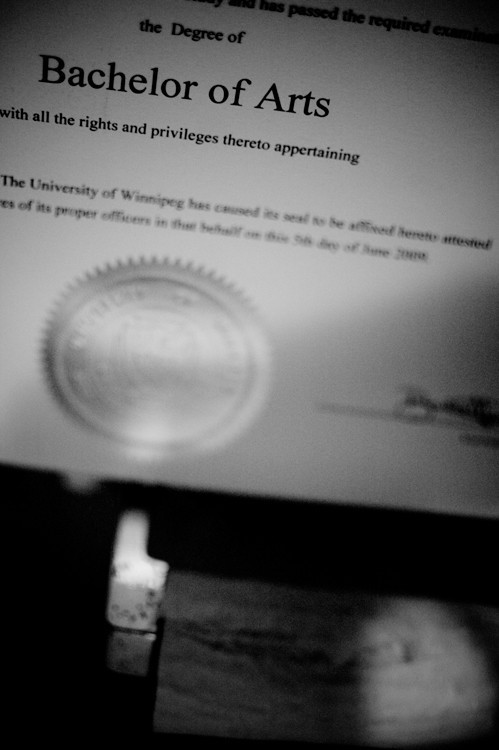Bachelor’s degrees worth more than just the paper they’re written on
Employers still value the undergraduate degree
Undergraduate students concerned they may someday need an MA just to serve fries can rest assured that won’t be the case, according to a new report on post-secondary education.
“There is a real market value to the non-vocational skills taught in liberal arts undergraduate programs,” said Torben Drewes.
Drewes, an economics professor at Trent University in Ontario, is co-author of a C.D. Howe Institute report released in August 2010 that looks at the payoff of education.
In 2005, according to the study called “The Payoff: Returns to University, College and Trades Education in Canada, 1980 to 2005,” men with bachelor’s degrees (BAs) earned 45 per cent more than men with a high school diploma.
This premium is even greater for women; women holding a BA made 60 per cent more in 2005 than those who stopped at high school.
A bachelor’s degree is still valuable in terms of job qualifications, noted Drewes.
The percentage of men with BAs who stated in the National Graduate Survey that they felt overqualified has fallen from 27 per cent in 1986 to 19 per cent in 2005, Drewes said. The number of BA-holding women who felt overqualified has dropped from 31 to 22 per cent over the same time period.
John Corlett, the University of Winnipeg’s vice-president of academics, believes a BA leads not only to greater earnings, but also greater life and job satisfaction.
“ It’s not that the MA degree is the new BA or that the BA is the new HS diploma ... Rather, the expectations for knowledge, intellectual ability and the way society has changed have upped the ante.
John Corlett, vice-president of academics, U of W
“There are four questions on everyone’s final exam for life: who am I, where have I come from, what am I doing and why am I here,” Corlett said. “A BA gives you the basic skills to answer those questions.”
Increasingly, employers are asking for a BA at the entry level and sometimes even a master of business administration (MBA), notes Mike Cuma, vice-president of human resources and labour relations consulting at career placement firm Legacy Bowes.
“At the same time, organizations don’t feel the need to hire an MBA when a BA-holder may have the required skills as well as a strong work ethic, maturity and the ability to work in a team,” Cuma said.
Corlett agrees that students won’t necessarily be doomed to more years of school for entry-level or servile jobs.
“It’s not that the MA degree is the new BA or that the BA is the new HS (high school) diploma,” Corlett said. “Rather, the expectations for knowledge, intellectual ability and the way society has changed have upped the ante.”
Fawn Purnell, who recently graduated with an education degree, did a practicum in Thailand instead of getting a master’s degree. She hoped this would set her apart on the job market. She’s uncertain, however, if this experience is valued by potential employers.
“They tell us it’s supposed to help us, but so far it has done little for me here,” Purcell said. “While other students got local practicum experience, they also made connections locally that I did not.”
Connections, she noted, that can lead to jobs in the future.
A summary of the C.D. Howe Institute report can be found at http://www.cdhowe.org/pdf/ebrief_104.pdf .
Published in Volume 65, Number 5 of The Uniter (September 30, 2010)







